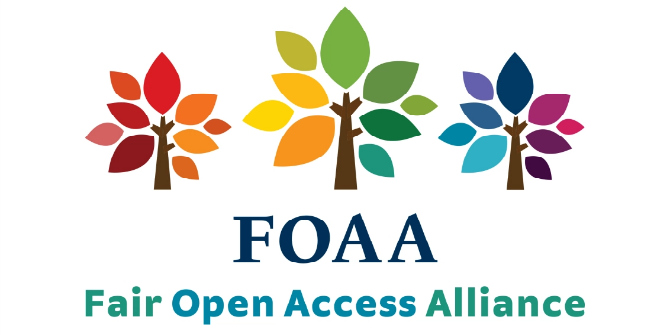
 To round off the Impact Blog’s coverage of Open Access Week 2018, Heather Piwowar and Jason Priem reiterate the beauty in appearance, ideals, and promise of Unpaywall, and also preview the team’s soon-to-be-launched GetTheResearch initiative, which will enable citizen scientists, patients, practitioners, policymakers, and millions more beyond academia to find, read, and understand the scholarly research on any topic.
To round off the Impact Blog’s coverage of Open Access Week 2018, Heather Piwowar and Jason Priem reiterate the beauty in appearance, ideals, and promise of Unpaywall, and also preview the team’s soon-to-be-launched GetTheResearch initiative, which will enable citizen scientists, patients, practitioners, policymakers, and millions more beyond academia to find, read, and understand the scholarly research on any topic.
There’s never been a better time for everyone to Get The Research. From climate change to cannabis research to the latest scoop on the dinosaur feather situation, we all want and need to know the latest on what scientists are thinking.
Yup, we could use Google Scholar. Yup, we could email the author. Yup, we could use Sci-Hub.
But we can do better. We can use tools that make it a beautiful experience to access scientific research.
Beautiful, you ask? Yup, beautiful. Beautiful in appearance, ideals, and promise.
Let’s start with the most superficial: appearance. We should access the research literature with tools that are simple and clean, fit for purpose, elegant. Most scholarly tools fall down here, but they shouldn’t – it matters. If you haven’t installed Unpaywall yet, try it. Unpaywall is a browser extension for Chrome and Firefox that does just one thing: links to a free copy of the research article you’re looking for somewhere on the web. It’s growing by more than 1,000 active users each week, through word of mouth; primarily, we think, because it makes the process of accessing the research literature simple, clean, and elegant. As a Canadian, it’s a little uncharacteristic of me to be so bold about something we’ve built, but seriously, try Unpaywall and see if you don’t agree that it presents an elegant solution to accessing the literature.
So that’s beautiful on the outside. But even better is that Unpaywall is beautiful on the inside.
It’s legal, open-source, has an open API, has open query tools, and is run by a non-profit. This kind of open infrastructure means other companies can build on its results – Unpaywall launched less than two years ago but it is already built into Web of Science, Scopus, Dimensions, Europe PMC, thousands of library link resolvers, and more. These integrations weren’t possible using Google Scholar because GS doesn’t have an open API or open data, due to ugly agreements they made with publishers in their early days. And these integrations will never be possible through Sci-Hub. Our non-profit status and open source code means Unpaywall won’t ever be acquired and subsumed like Mendeley, SSRN, or bepress. The beautiful ideals of openness are baked into the implementation of open infrastructure like Unpaywall.
Finally, we have some really shiny plans for the next few months. Thanks to a grant from the Arcadia Fund, the team behind Unpaywall will soon be launching a new product called GetTheResearch where regular people can find, read, and understand the scholarly research on any topic. It’ll be built on the 20 million open access articles in the Unpaywall index, and feature AI-powered tools that help make the content and context of scholarly articles clearer to readers. We won’t be dumbing down or interpreting science, but we will be giving motivated readers scaffolding to help them build their understanding. It is a beautiful and noble thing to bring and explain the peer-reviewed literature to everyone who would like to read it, and GetTheResearch will help to complete the bridge open access advocates, publishers, authors, infrastructure builders, and librarians have been assembling for decades. Sign up for a launch email at http://gettheresearch.org/ if you’re interested in learning more when it rolls out.
So, notice the beauty in your tools: inside, outside, and in ambition. Value that in your tools, and in so doing you’ll be become part of the beautiful process yourself.
Happy Open Access Week everybody! 🙂
Note: This article gives the views of the authors, and not the position the organisations they work for, the LSE Impact Blog, nor of the London School of Economics. Please review our comments policy if you have any concerns on posting a comment below.
About the authors
Heather Piwowar is a co-founder of Impactstory and a leading researcher in research data availability and data reuse. She wrote one of the first papers measuring the citation benefit of publicly available research data, has studied patterns in data archiving, patterns of data reuse, and the impact of journal data sharing policies. Heather has a bachelor’s and master’s degree from MIT in electrical engineering, ten years of experience as a software engineer, and a PhD in Biomedical Informatics from the University of Pittsburgh. She is a frequent speaker on research data archiving, writes a well-respected research blog, and is active on twitter (@researchremix).
Jason Priem is a co-founder of Impactstory and a doctoral student in information science (currently on leave of absence) at the University of North Carolina-Chapel Hill. Since coining the term “altmetrics”, he’s remained active in the field, organising the annual altmetrics workshops, giving invited talks, and publishing peer-reviewed altmetrics research. Jason has contributed to and created several open-source software projects, including Zotero and Feedvis, and has experience and training in art, design, and information visualisation. Sometimes he writes on a blog and tweets.








2 Comments